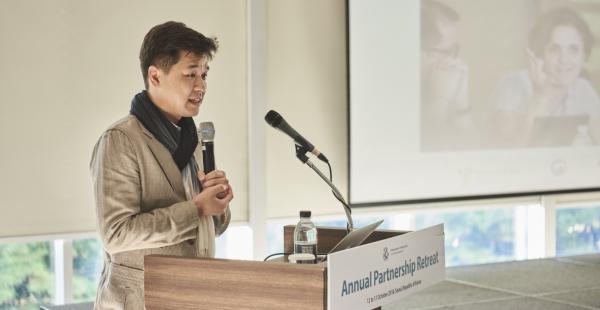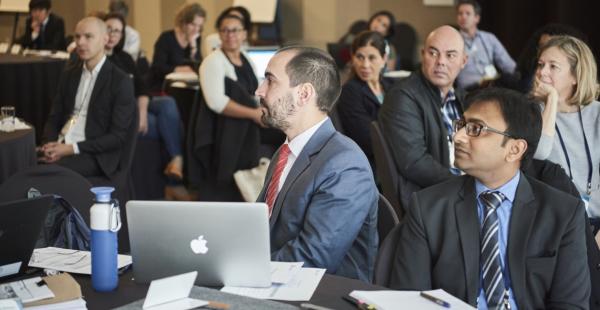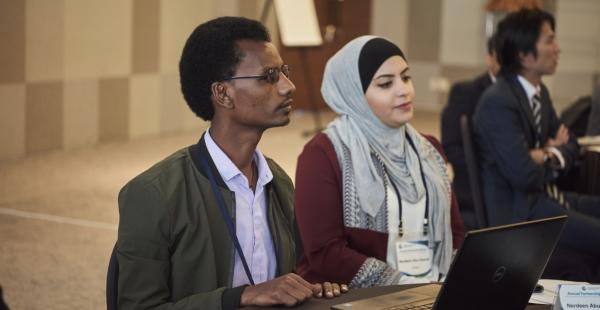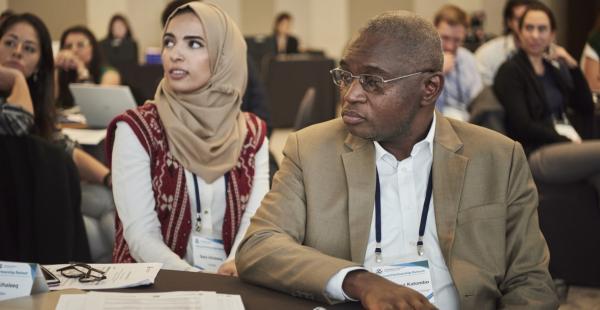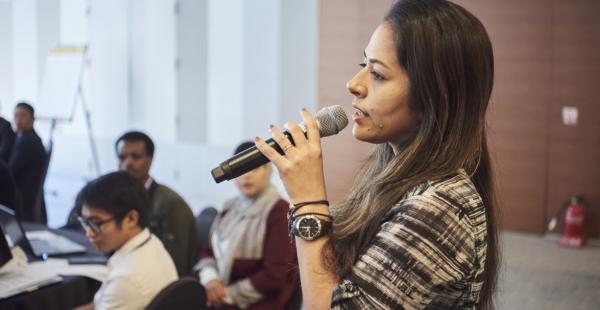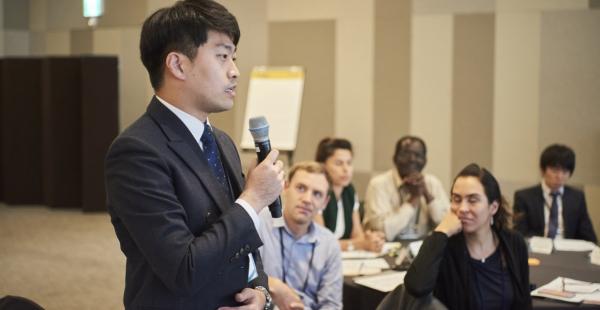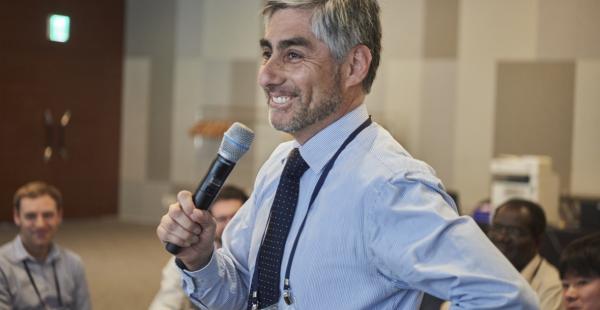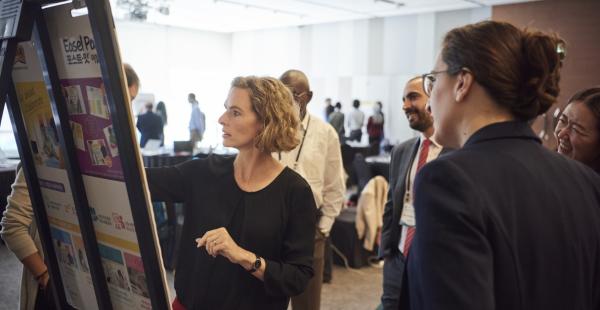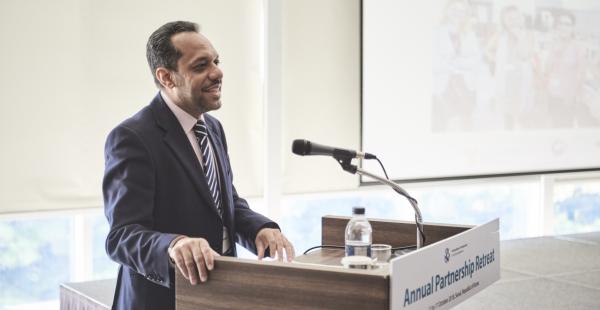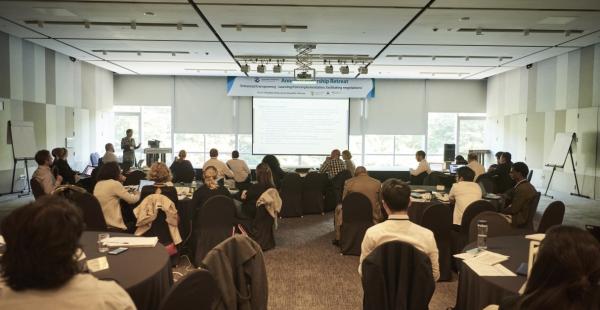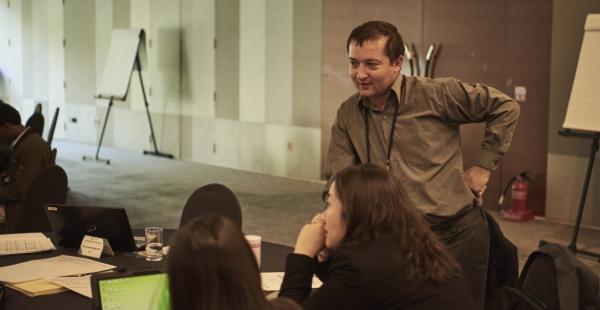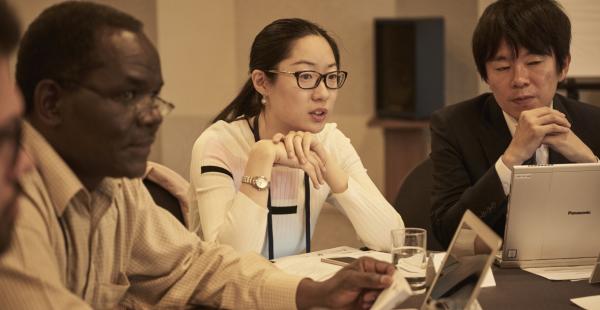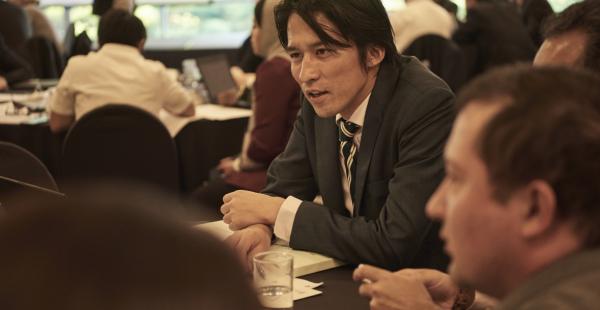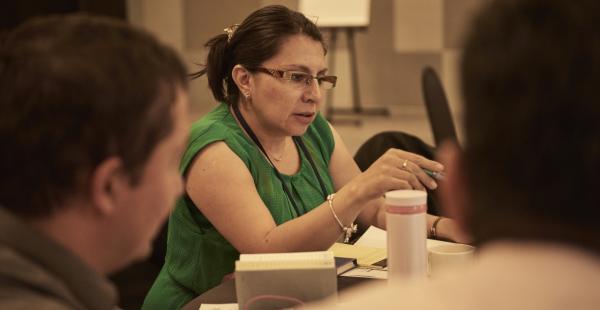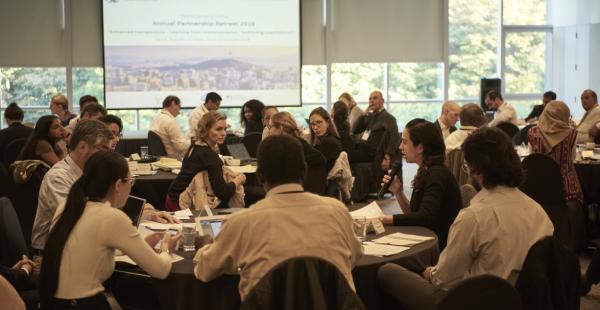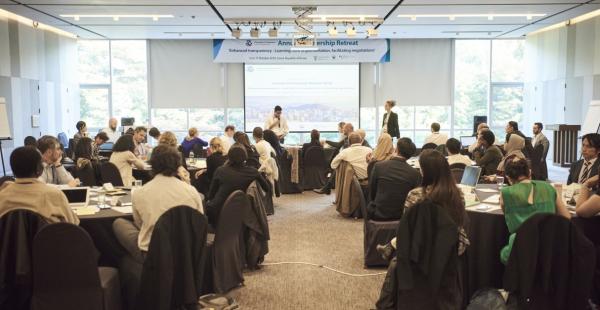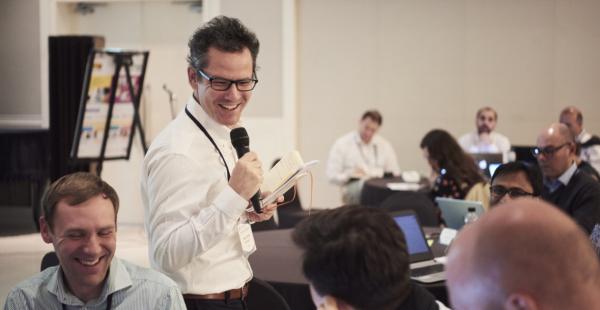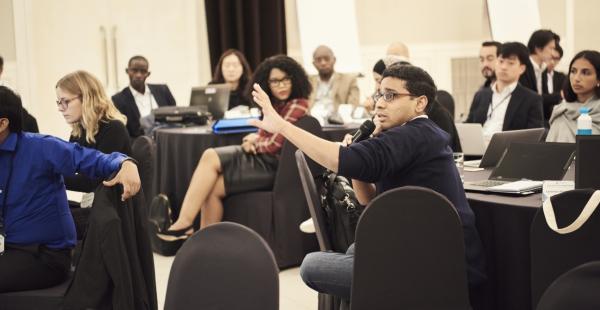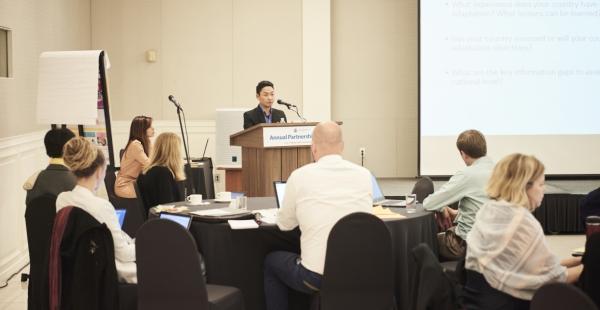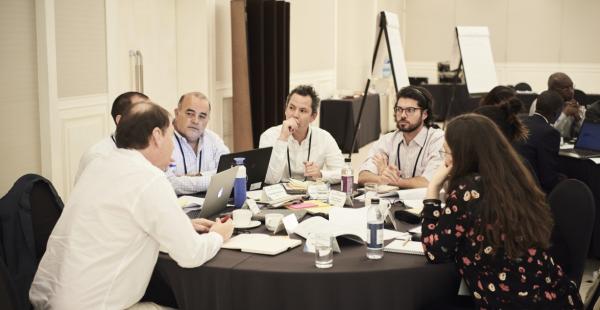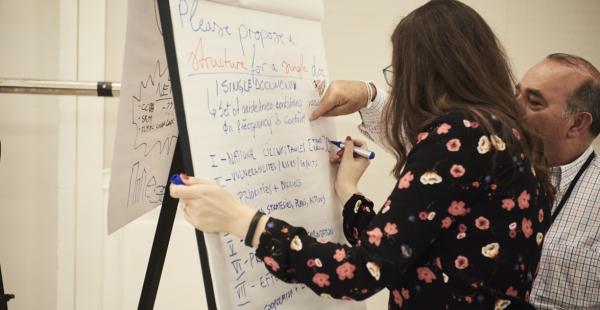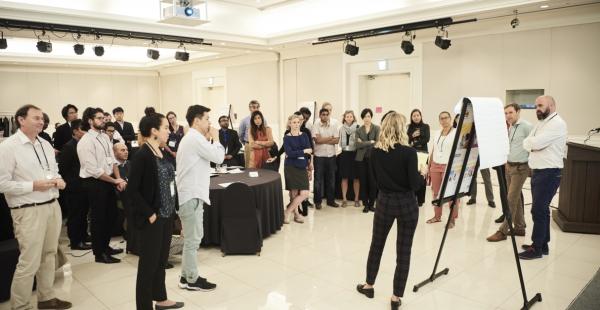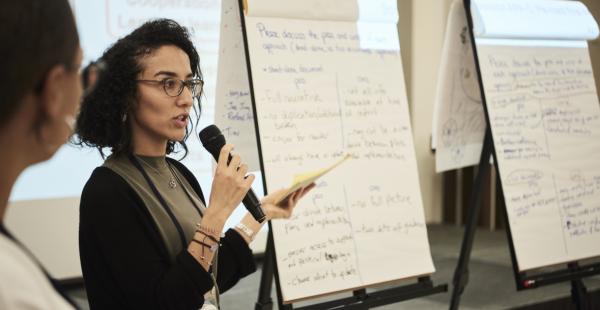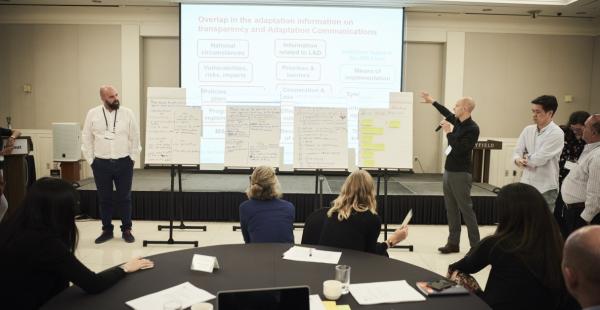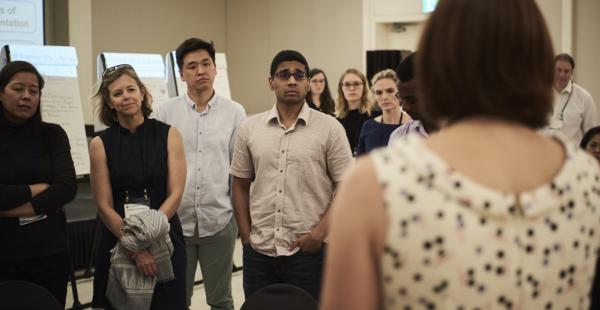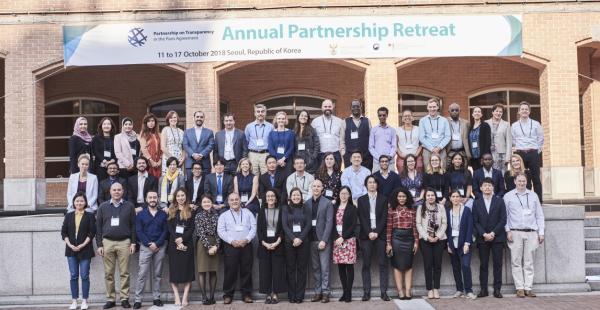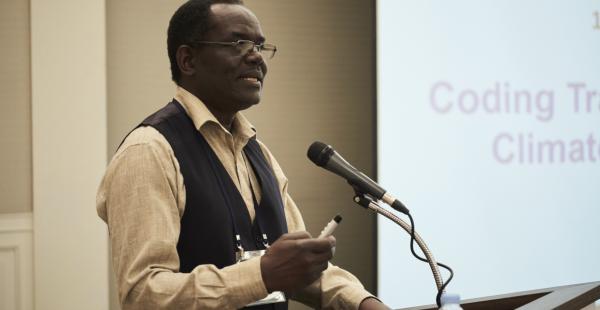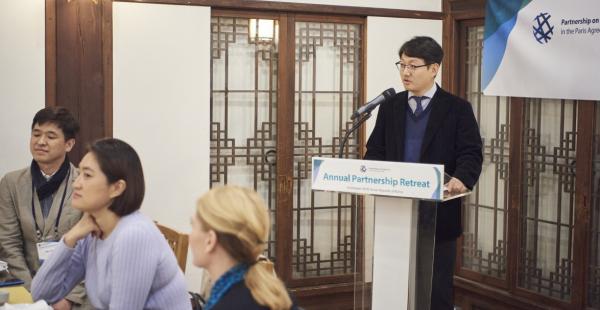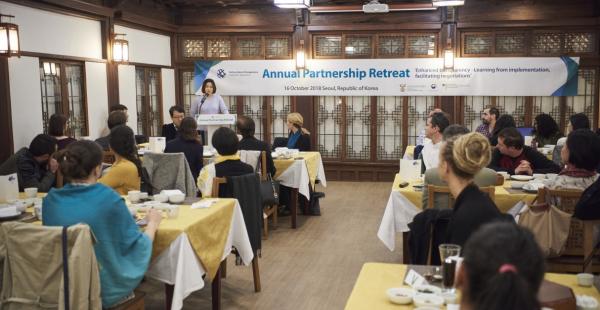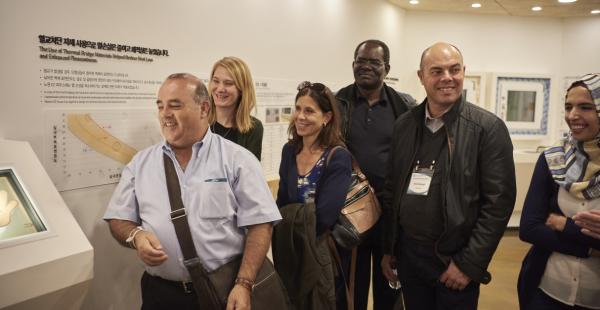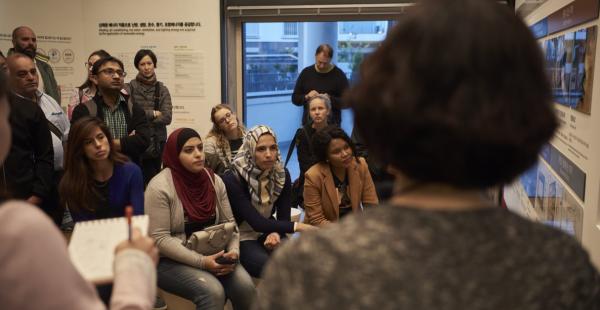7th Annual Partnership Retreat discusses how to achieve enhanced transparency
The Annual Partnership Retreat of the Partnership on Transparency in the Paris Agreement is an established forum for facilitating the international negotiation process on the issue of climate transparency and for sharing experience in building national transparency systems in different countries. The 7th Retreat took place against a backdrop of important political developments: In just a few weeks’ time, the rules for implementing the Paris Agreement will be determined and adopted at the 24th Session of the United Nations Climate Change Conference (COP24) in the Polish city of Katowice. A key focus here will be on the modalities, procedures and guidelines (MPGs) for the enhanced transparency framework (ETF).
56 participants from 27 developing and industrialised countries, the EU Commission and various international organisations met during the Retreat held from 12 to 17 October 2018 in Seoul, Republic of Korea. Together, they reflected on the state of the MPG negotiations, discussed various positions and shared their experience in implementing the current measurement, reporting and verification (MRV) framework. The Retreat covered all sections of the Revised additional tool under item 5 of the agenda (transparency) of the Ad Hoc Working Group on the Paris Agreement (APA), with a particular focus on GHG inventories and tracking progress made in implementing and achieving NDCs. This APA tool will form the basis for negotiations on designing the transparency framework at COP24.
A key question that was raised during discussions on nearly every topic at the Retreat was how to provide the flexibility stipulated in the Paris Agreement to developing countries in the implementation of the rules. The participants confirmed the conclusions drawn from the last Retreat in 2017 that the flexibility offered should be based on specific elements in the MPGs, it is not a principle that can be applied generally, and it remains closely tied to the countries’ implementation capacities for each specific aspect of transparency. Nevertheless, different positions also became evident during the discussions.
The exchange during the Retreat also made it clear that many participants had a much broader understanding of the transparency of mitigation than of transparency of adaptation or support.
The Retreat made it possible for country representatives to better understand the negotiating positions of other countries and groups of countries, discuss options and compare experience in proper implementation.
‘The Annual Partnership Retreat is very useful to understand the experiences and concerns of others and to build relationships which will help when designing and agreeing on MPGs.’ (anonymous quote from the evaluation)
In addition to the exchange at technical and policy levels, the participants gave recommendations for the direction of the Transparency Partnership's future work, which will be incorporated into planning for the coming months and years.
The Greenhouse Gas Inventory & Research Center of Korea (GIR) hosted this year's Retreat, which was organised by GIZ's Support Project for the Implementation of the Paris Agreement (SPA) on behalf of the German Federal Ministry for Environment, Nature Conservation and Nuclear Safety (BMU).
You can download the agenda and the report in the right margin of this page.
Presentations:
Day 1
Rocio Lichte, Germany / Sandra Motshwanedi, South Africa - Introduction to the Partnership on Transparency in the Paris Agreement and the APR 2018 Partnership Retreat
Katia Simeonova, UNFCCC Secretariat - Input: State of play of negotiations
Day 2
Goncalo Cavalheiro - Input: Summary of PATPA’s paper on flexibility and capacity building
Timo Leiter, GIZ - Monitoring and Evaluation (M&E) of adaptation action
Rafael Martinez Blanco, Mexico - Approach of M&E of adaptation in Mexico
Illari Aragon, iied - Information related to adaptation transparency
Omedi Moses Jura, Kenya - Coding Tracking & Reporting on Climate Finance in Kenya
Laurence Ahoussou, Canada - System to track and report support provided
(no presentations on day 3)
Day 4
Marcia Rocha, OECD - Input: Introduction to flexibility – OECD’s papers on flexibility
Chisa Umemiya, Japan - Input: Trends of GHG inventory reporting in BURs
Takashi Morimoto, Japan - Improving GHG inventory over time
Vaibhav Gupta, CEEW - Key issues on GHG inventories in the MPGs negotiations
Day 5
Julia Gardiner, Australia - Estimating and reporting progress towards emission reduction targets
Patricia Abreu, Brazil - Implementing the Brazilian National REDD+ Strategy
Cynthia Elliott, WRI - Key issues for tracking progress in the MPGs negotiations
Felipe Osses, Chile - Chile's experience in participating in international verification processes
Sandra Motshwanedi, South Africa - South Africa’s Experience on ICA
Oscar Zarzo Fuentes, Germany - Germany's experiences with the review processes under UNFCCC
Ana Danila (lead reviewer) - Role of TER in capacity building and continuous improvement
Day 6
Dustin Schinn, GEF - Capacity-building Initiative for Transparency: Progress and Prospects (remotely)


